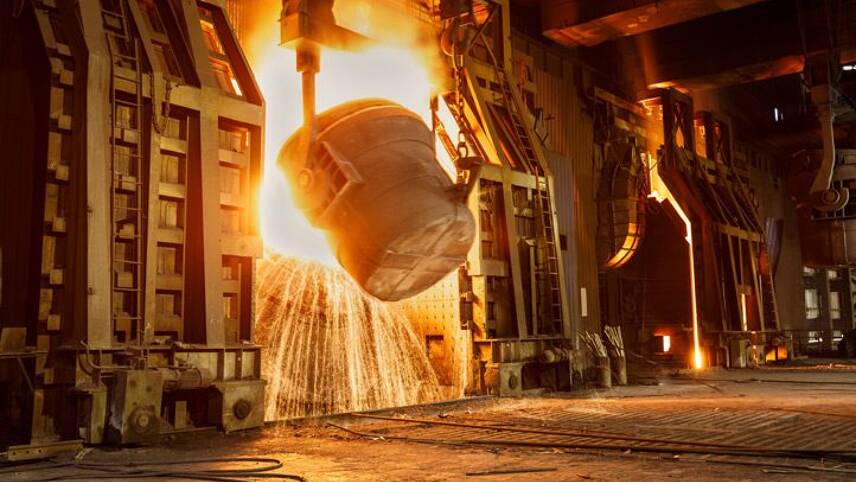Register for free and continue reading
Join our growing army of changemakers and get unlimited access to our premium content

The company will work with the Science Based Targets initiative (SBTi) to validate efforts to reach net-zero emissions
ArcelorMittal unveiled an ambition to reach net-zero emissions by 2050 back in September 2020. The company has this week set a new interim goal to reduce its carbon emissions intensity by 25% by 2030 for scope 1 and 2 emissions globally. A European-wide target of a 30% emissions reduction has also been increased to 35%.
The company estimates that reaching these goals will require an investment of around $10bn in capital expenditure, with 35% of the funding to be delivered by 2025. ArcelorMittal believes that the steel industry will “undergo a transformation of the assets used to make steel on a scale not seen for over 100 years”.
ArcelorMittal’s chief executive Aditya Mittal said: “As the world’s most prolific material, steel can make a huge contribution to the decarbonization of the global economy. Steel is already the material of choice due to its lower carbon footprint and high recyclability.
“But we can and must go further as zero carbon-emissions steel has the potential to be the backbone of the buildings, infrastructure, industry and machinery, and transport systems that will enable governments, customers and investors to meet their net-zero commitments. ArcelorMittal has been working hard to be at the forefront of our sector in the net-zero transition, as we believe not only will this help decarbonize the global economy but will also generate opportunities in multiple aspects of our business.”
The company will work with the Science Based Targets initiative (SBTi) to validate efforts to reach net-zero emissions, but has already earmarked certain decarbonisation projects across its operations.
In Spain, operational emissions will be reduced by 50% by constructing a 2.3 million tonne hydrogen-powered direct reduced iron (DRI) unit at Gijon. Similarly, the construction of a DRI plant in Dunkirk will produce two million tonnes of hot metal annually while reduced carbon emissions by 2.85 million tonnes by 2030. Hydrogen will also be tested at a DRI facility in Quebec.
In Gent in Belgium, the company is building an industrial-scale demonstration plant that converts waste wood into bio-coal through a process called “torrefaction” – a thermal process to convert biomass. The plant is expected to be completed in 2022 and will produce 80 million litres of bioethanol annually.
Additionally, ArcelorMittal will continue to invest in “Torero” and “Carbalyst” – two technologies to enable the use of circular carbon. Torero is a torrefaction process for bioenergy, while Carbalyst enables waste gases from steelmaking to be used in bioethanol.
Renewables and green tariffs will be prioritised and the use of carbon offsets will account for any residual emissions.
These investments are “underpinned by a set of assumptions”, that could enable decarbonisation to accelerate in certain markets. ArcelorMittal notes that different regions of the world will decarbonise at different paces based on policy and finance and has labelled each region where it operates as either ‘Accelerate’ – a region where decarbonise can happen more quickly due to an enabling environment – or ‘Move’ – a region where they have to push for changes through engagement with suppliers and policymakers. Europe, for example, is expected to be a leading market for carbon capture, utilisation and storage (CCUS) infrastructure.
Additionally, the company claims that the cost of green hydrogen will become competitive over the next decade, provided government support is introduced.
SteelZero
Last December, a new collaborative initiative was launched to decarbonise the steel sector.
Convened by The Climate Group, which is perhaps best known for its RE100 and EV100 initiatives, the new scheme is called SteelZero and will represent businesses from all parts of the steel value chain.
By signing up to SteelZero, companies commit to procuring, specifying, stocking or producing 100% net-zero steel across all operations by 2050 at the latest. ArcelorMittal has shared its approach to decarbonisation with other members.
Steel is a notoriously high-emission material and a hard-to-abate sector. More than 90% of metal produced in the world is steel, and the sector is accountable for around 7% of global emissions from fuel use. Researchers believe that a combination of electrification, energy storage, alternative fuels and circular economy innovations are needed to align the sector with net-zero. Carbon capture and offsetting are also being explored by some producers.
Matt Mace


Please login or Register to leave a comment.